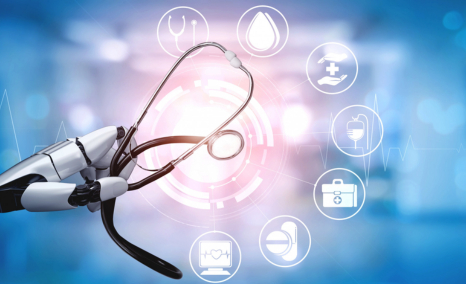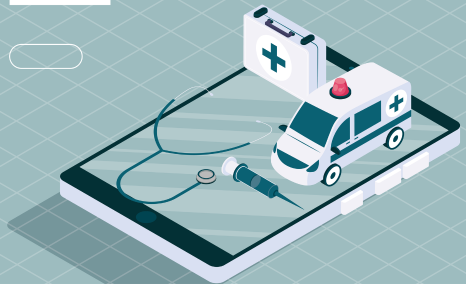Artificial Intelligence (AI) in Respiratory Care: An Opportune Time for Adoption in Clinical Settings and the Drug Development Process
Sep 20, 2024
Table of Contents
Artificial Intelligence (AI) is one of the most groundbreaking innovations of the 21st century, with applications spanning nearly every industry, including healthcare. In respiratory care, Artificial intelligence has the potential to enhance accuracy and efficiency while reducing costs. It can play a transformative role in various stages of patient care, from disease diagnosis and symptom monitoring to developing effective treatment plans. Additionally, AI in healthcare can significantly impact drug discovery by contributing to various stages of drug development, including disease identification, target selection, and predicting drug toxicity and efficacy.
Introduction to AI: What is Artificial Intelligence and Why is AI Essential in Healthcare?
AI can be defined as a technology that enables computers and machines to perform cognitive functions such as learning, comprehension, problem-solving, decision-making, creativity, and autonomy, which were once considered unique to human minds. To enable machines to perform human-like tasks, they are trained on large datasets in a process known as Machine Learning.
Downloads
Article in PDF
Recent Articles
- How is Artificial Intelligence Used in Drug Discovery & Development?
- GE Healthcare-Optellum’s collaboration; Ocugen’s Covid-19 vaccine trial; Blueprint to acqui...
- Most Promising Applications of Artificial Intelligence (AI) in Healthcare Segment
- Aerin Medical’s RhinAer Stylus; CE Mark for Haemonetics’s VASCADE Vascular Closure Device; J&...
- Medical Odyssey: Solving the Dynamic Puzzle of Global Tourism Market
It is estimated that healthcare accounts for over 30% of the world’s data. In the US alone, healthcare-related data from digital sources reached nearly 150 exabytes (1018 bytes) in 2011 and continues to grow rapidly. Analyzing this vast amount of data is an overwhelming task for healthcare professionals, including physicians and scientists, who, like all humans, can process only a limited number of data points at once—typically six or fewer, according to a study. Computers, on the other hand, have no such limitation and can analyze millions of data points simultaneously. This makes AI and machine learning essential tools with the potential to revolutionize the healthcare industry.
Discover how AI Apps are Revolutionizing Patient Care! Click here to explore Top AI-Based Healthcare Apps
Application of Artificial Intelligence in Healthcare: In What Areas Can AI Make a Significant Impact in Respiratory Care?
Artificial intelligence is revolutionizing respiratory care by enhancing early disease detection, optimizing treatment plans, and improving patient monitoring through predictive analytics. AI-powered tools can analyze lung scans with precision, detect conditions like COPD or asthma sooner, and personalize therapies for better outcomes. The future of respiratory health is smarter, faster, and more efficient with the presence of AI in healthcare. Let’s explore the application of AI in healthcare in detail.
Artificial Intelligence in Healthcare for Diagnosis and Monitoring
One of the main applications of artificial intelligence in respiratory care is the accurate diagnosis and monitoring of respiratory disorders, which is currently a primary challenge in disease management. Leading respiratory diseases such as asthma and chronic obstructive pulmonary disease often present with similar symptoms, making differentiation difficult and sometimes leading to misdiagnosis. An incorrect or unclear diagnosis can delay the initiation of appropriate treatment, potentially compromising the overall effectiveness of care.
Moreover, the interpretation of pulmonary function tests, such as spirometry and diagnostic imaging, is often subjective and can vary among healthcare professionals. Artificial intelligence tools in healthcare, trained on large datasets, can reduce this subjectivity and help achieve more consistent and accurate diagnoses.
“Interpreting pulmonary function tests and diagnosing respiratory diseases is a complex task for pulmonologists, often requiring additional information and tests to achieve a high level of accuracy. In contrast, AI-based software offers superior performance, making it a valuable decision support tool that can enhance current clinical practices.”
KU Leuven, Belgium
Since diseases like asthma and COPD are chronic, effective monitoring is a crucial aspect of managing these conditions. Current monitoring practices often require patients to visit healthcare facilities, which can be inconvenient, time-consuming, and expensive. AI tools in healthcare offer a more cost-effective alternative to these traditional methods.

Artificial Intelligence in Healthcare for Treatment Selection and Adherence
AI can assist in three key stages of the overall treatment process: first, identifying the most appropriate treatment; second, optimizing treatment plans using real-time data; and third, enhancing patient adherence. Artificial intelligence tools in healthcare can analyze large datasets, including patient demographics, clinical history, and genetic profiles, to determine the best treatment strategies, making care more personalized.
Additionally, it can optimize treatment and improve adherence. For example, AI-powered smart inhalers can monitor inhalation techniques and provide clearer instructions for correct use. These inhalers can also remind patients of their dosage and schedule while supplying valuable data to healthcare providers to enhance disease management.
“The use of machine learning and deep learning techniques can help identify patient groups that may benefit from specific treatments or possess characteristics that are not always apparent to clinicians. AI can pinpoint patients with increased needs or those who could benefit from targeted therapies, ultimately reducing hospital readmission rates.”
Yale School of Medicine, US
Optimizing the Use of Emergency and Critical Care Medicine
Efficient, effective, and timely use of resources is crucial in the emergency department. A triagist typically makes decisions based on patients’ history, vital signs, and other factors. However, this process can sometimes be delayed, leading to serious consequences. An AI tool in healthcare could be invaluable in such situations by rapidly assessing multiple parameters and providing quick results.
Similarly, in the ICU, large amounts of patient data are collected, and every second is critical. A tool capable of analyzing this data to assist clinicians with decision-making, prognosis, and treatment is essential. Additionally, predictive AI models could help identify patients at higher risk of complications or mortality.
Supportive Evidence: Is There Data to Support the Bold Claims Made by AI Enthusiasts?
AI has been present for quite some time. Still, a lack of clinical and empirical evidence has limited its widespread adoption in clinical settings. However, this trend may be shifting as more supportive data emerges. In a study presented at the European Respiratory Society (2018), 120 pulmonologists from 16 European hospitals (located in Belgium, France, the Netherlands, Germany, and Luxembourg) analyzed Pulmonary Function Test (PFT) data from 50 randomly selected patients, making a total of 6,000 interpretations. The study compared the pulmonologists’ interpretations with those of an AI system. It found that the pulmonologists’ interpretations aligned with established guidelines in 74% of cases (ranging from 56-88%), while the AI-based software achieved a perfect 100% match with the guidelines. Additionally, the pulmonologists correctly diagnosed the primary disease in 45% of cases (ranging from 24-62%). In contrast, the AI system made accurate diagnoses in 82% of cases, demonstrating nearly twice the accuracy of the doctors.
In a recently (2023) published study, 5,794 patients—1,893 with asthma and 3,901 with COPD—were analyzed. The study demonstrated that combining machine learning or deep learning models with computable EHR phenotypes and structured data from initial asthma and COPD hospitalizations led to high predictive accuracy in identifying individuals at risk of readmission.
Several recent studies have also demonstrated that AI in healthcare can be a valuable tool for early and accurate diagnosis, improved monitoring, and more effective treatment planning while simultaneously reducing readmission rates and lowering healthcare costs.
Tracking the Actions of Leading Respiratory-based Pharma Companies and Scientific Community: Are They Reacting to the Growing Evidence for AI-enabled Diagnosis and Treatment?
As AI continues to revolutionize healthcare, it’s crucial to track how leading respiratory-based pharmaceutical companies and the scientific community are responding to this shift. With growing evidence supporting AI-enabled diagnosis and treatment, are these industry giants evolving their strategies to integrate cutting-edge technology, or are they falling behind? From predictive analytics to personalized therapies, AI in healthcare is reshaping the landscape. Now, the question is: How are these key players adapting to harness AI’s potential to enhance patient outcomes and optimize respiratory care? Let’s explore their actions—or inaction—in this rapidly changing field.
AI in Drug Discovery and Development
The increasing evidence supporting the use of AI in the pharmaceutical value chain, from drug discovery to treatment planning and adherence, has encouraged pharma companies to integrate AI in clinical trials to accelerate the trial process. For instance, in February 2024, AstraZeneca partnered with ArtiQ, a developer of AI-driven software designed to optimize clinical trials. Through this collaboration, an artificial intelligence tool in healthcare is being used to enable patients to conduct lung function tests at home, allowing for closer monitoring of clinical trial participants. Emphasizing the significance of the partnership, an executive medical director said:
“Digital health solutions and artificial intelligence are becoming key to optimizing clinical trial design and delivery. The real-time feedback on spirometry helps AstraZeneca to increase the reliability of our data, allowing us to improve patient care and drive healthcare transformation.”
Executive Medical Director, Early Respiratory and Immunology, AstraZeneca
AI in clinical trials is anticipated to enhance the results in two main ways: first, by ensuring high-quality data collection through real-time feedback to patients, and second, by replacing the manual process of over-reading, where a human expert reviews and validates the consistency of all trial data. This will lead to faster trials and more comprehensive data collection.
Apart from the uses mentioned above, AI in drug discovery and development, including disease identification, target acquisition, and predicting toxicity and efficacy of the drug, among others. Integrating AI at these stages will improve the efficiency and effectiveness of the drug discovery process. Most major pharmaceutical companies are actively exploring research in this area and seeking to integrate AI into their drug discovery process, primarily by partnering with AI-based companies.
Learn how artificial intelligence is revolutionizing drug commercialization, optimizing strategies, and driving innovation in the pharmaceutical industry. Read our latest insights on AI in drug commercialization
AI in ERS Congress 2024
Similarly, the scientific community is eagerly engaging with AI experts to understand the potential use of AI in respiratory medicine and science along with its limitations. The theme of the European Respiratory Society (ERS) Congress 2024 was chosen as ‘Humans and machines: getting the balance right’, which further highlights the growing importance of AI in respiratory. While explaining the reason for selecting a theme around AI, the ERS Congress Co-Chair said:
“We really felt that focusing on developments in AI for our field was particularly timely. The rate of progress and development in this area is both exciting and daunting and this idea of finding ‘balance’ is something which is certainly a hot topic, not just in medicine, but across all sectors. This theme, in my opinion, is one of the most cross-cutting in recent years – it is of interest to all disciplines and across specialist areas.”
ERS Congress Co-Chair
The opening session of ERS 2024 featured a keynote presentation by Bertalan Mesko, director of The Medical Futurist Institute. His address focused on the responsible use of AI in respiratory medicine and its potential to advance personalized medicine, offering insights into the future of AI in healthcare, along with its benefits and challenges. Additionally, Maria Neira, director of public health, environmental, and social determinants of health at the World Health Organization, delivered an address that provided a broader view of the global health implications of AI in healthcare and other technological advancements.
Furthermore, the ERS congress featured AMECA, one of the most advanced humanoid robots in the world. The robot engaged with the audience and answered questions, delving into the potential benefits and risks of incorporating generative AI into respiratory medicine.
Discover how artificial intelligence is transforming mental health care. Check out our article on AI in Mental Health to learn more about its impact and innovations
Limitations of Artificial Intelligence in Respiratory Medicine
Like all machines and technologies, AI in healthcare has certain limitations. However, these limitations can have broader implications and, in some cases, may even be fatal. For instance, AI tools in healthcare trained on small datasets can produce inaccurate diagnosis or treatment recommendations. Another concern relates to disparities in healthcare delivery. Suppose artificial intelligence algorithms factor in low socioeconomic status as a significant risk for premature mortality. In that case, they may unintentionally introduce bias against patients from specific ethnic or socioeconomic backgrounds, potentially widening disparities in health outcomes.

The most critical limitation of AI in healthcare is the challenge of safeguarding the privacy, confidentiality, and security of data collected through various AI and machine learning tools. Healthcare information is highly sensitive and personal. Any breach can expose individuals to various forms of discrimination and may even put their lives at risk. Therefore, the future of AI in healthcare hinges on how robust systems can maintain data privacy and security, as well as on the data protection regulations implemented globally.
Conclusion
“AI cannot replace doctors; this is certain because doctors are able to consider a broader perspective beyond what pulmonary function tests alone can provide. Their ability to make decisions based on a range of factors is unmatched. However, AI is set to enhance their capabilities, reduce errors, and minimize redundant tasks.”
Virginia Commonwealth University, US
The integration of AI tools in healthcare into data-driven decision-making in respiratory medicine is inevitable and may occur sooner rather than later. Nonetheless, artificial intelligence will serve as a decision-support tool rather than a replacement for doctors. Its potential is even more promising in drug development and commercialization. According to an estimate, developing a new drug for respiratory disorders like asthma or COPD costs over USD 1 billion, with an average development timeline of 10 years or more, from preclinical stages to approval. AI tools in healthcare have the potential to reduce both costs and development time significantly.

Downloads
Article in PDF
Recent Articles
- Can We Overlook The Potential Dangers That Come With AI In Healthcare?
- COVID-19 crisis can prove to be a catalyst for Artificial Intelligence in Healthcare
- AI-Driven Diagnostics: Why are They the Next Big Thing in Healthcare?
- How Will Artificial Intelligence Change The Future Of Healthcare?
- How is Artificial Intelligence Used in Drug Discovery & Development?



